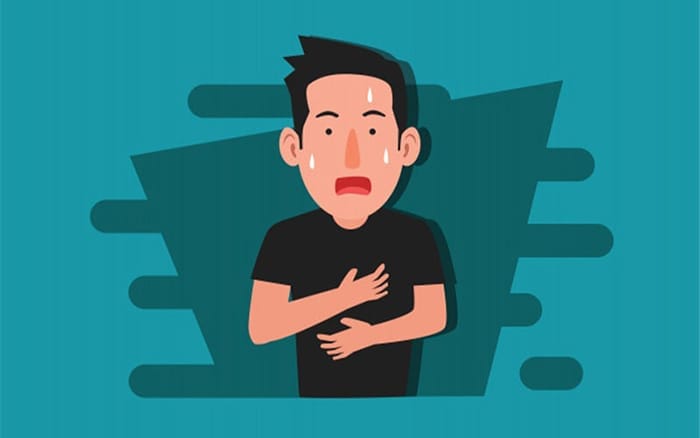
Blog
panic attack

Panic attacks are a common disorder in the world. This attack is difficult and can scare a person severely, and the person, in fear of panic attack, cannot go through the normal life. Everyone may experience Panic attacks in their lifetime. but constant panic attacks are probably a sign of a disorder that is making his life difficult. Therefore, it is very important to recognize and prevent attacks, and it is better to find the root and treat it.
فهرست عناوین
Togglewhat is a panic attack?
panic attack is a sudden and severe fear and a person feels that he has no control over his body, thoughts, and behavior. a person with a panic attack experiences fear and panic along with physical symptoms. The level of fear in this disorder is unrealistic and does not match the factors and conditions that cause the attack.
Symptoms of panic attack
The duration of the attack is approximately 10 to 30 minutes.
In each attack, a strong feeling of fear, worry, and physical symptoms appear and reach their peak within a few minutes.
The person who is involved in a panic attack experiences emotions such as fear of fear, fear of suffocation, fear of death or imminent danger, fear of a strong desire to escape, and a feeling of disconnection from reality. In the fear of death, a person feels that he has a heart attack and is dying. These symptoms may increase and make the attack more severe.
Experiencing a feeling of disconnection from reality, a person may feel like they are seeing events from someone else’s point of view and have no control over their body or the situation. During an attack, physical symptoms like excessive sweating, rapid breathing, palpitations, dizziness, suffocation, and chest pain may occur. Respiratory disharmony is significant in panic attacks as incorrect breathing can result in 80% of oxygen being left in the lungs during exhalation, leading to a lack of oxygen in the body’s cells. This can cause dizziness and fainting if it continues.
People with panic attack disorder may avoid leaving their comfort zone due to fear of an attack, and they might limit their daily activities, missing out on social opportunities.
Suggested article: anxiety disorders

Causes of panic attacks
The cause of panic attacks is not clear, but there are different views about its origins. Although there are no specific warnings for these attacks, persistent stressful situations can trigger them. It can be described as the body’s natural response to difficult situations. Unpleasant experiences or genetics can also be a cause of panic attacks. In addition, panic attacks can result from mood disorders (such as depression), other anxiety disorders (such as agoraphobia), severe and long-term stress, and physiological diseases such as heart and respiratory diseases . Panic attacks are commonly found among individuals with a family history of attacks or those who have experienced traumatic events, such as childhood physical or sexual abuse or grief. Individuals with panic attack disorder often have other mental health problems as well.
Panic attack vs anxiety attack
Anxiety attacks are a response to real danger and traumatic situations, while panic attacks/panic disorders do not necessarily require a cause and can manifest in any situation. The intensity of an anxiety attack can vary, while panic attacks are intense and overwhelming in any situation. Anxiety attacks may become more intense over time, whereas panic reaches its peak in a few minutes. The effects of an anxiety attack can last after the attack ends, but panic subsides after the attack until the next occurrence.
Panic Attack and Respiratory Alkalosis
For a more accurate diagnosis of panic, it is helpful to consider the similarities between panic attacks and respiratory alkalosis. Respiratory alkalosis occurs when the acidity level in the lungs becomes too alkaline, resulting in increased breath rate, chest pain, and heaviness. These symptoms are similar in panic attacks and respiratory alkalosis, with the distinction that panic attacks involve more of a psychological dimension, while respiratory alkalosis is a medical issue.
Suggested article: Familiarity with specific phobias

Effective Methods for Managing a Panic Attack
Focus on Autonomic Nervous System Activity
Symptoms such as sweating and heart palpitations are involuntary, and you have no control over them. By focusing on autonomic nervous system activities, particularly breathing, you can return to a relaxed and normal state. When you feel fear, you may enter the fight or flight mode and experience a panic attack, leading to increased breathing rate Recognizing that this fight or flight situation is not real can help you balance the arousal.
Breath control tips
Breathing time: To control the condition, it is better to focus on your breathing time, so that the appropriate amount of oxygen reaches the lungs. Deep breaths help to pass the state of panic. It is better to breathe through the nose because the volume of carbon dioxide entering the respiratory system increases. It also increases the amount of nitric acid in the lungs. Carbon dioxide and nitric acid both cause more oxygen release.
Diaphragmatic breathing: The diaphragm can induce a sense of relaxation due to its connection with the parasympathetic nervous system, which is active during relaxation.
Deep breathing: Deep breathing brings the body closer to a state of balance and relaxation. the temporal fit between inhalation and exhalation is necessary to maintain the balance of oxygen and carbon dioxide so that you can change from an excited state to a normal state. . Depending on your physiology, ability, and age, inhale for about 4-6 seconds and after holding it for a few seconds, blow the air out of your lungs in 4-6 seconds. It is better to do this exercise outdoors.
Panic attack treatment
In the process of treatment, the therapist helps you to reduce the intensity and frequency of attacks and improve your daily life by changing your attitude and reactions to the factors that cause fear.Treatments, depending on the severity of the disorder and your abilities. They include psychotherapy and Pharmacotherapy(drug therapy). The solutions are just recommendations to prevent panic attacks. It is better to seek help from a psychiatrist and psychologist for treatment.
برای مشاوره رایگان و رزرو وقت (یا اگر تماس گرفتید و قادر به پاسخگویی نبودیم) شماره تماس خود را وارد کنید. ما به زودی با شما تماس می گیریم!



